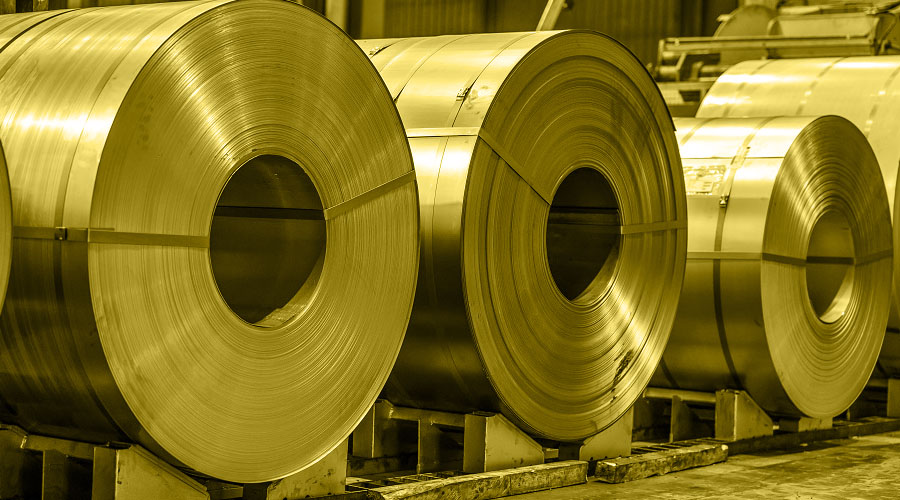Coils are wound rolls of material that can vary in type and use, depending on the industry and the specific application. They are commonly used in manufacturing and processing industries to manage and transport various materials such as metal, wire, paper, and plastic. Coils are typically created by winding a flat material into a cylindrical shape, which facilitates easier handling, storage, and transportation.
Types of Coils:
-
Metal Coils:
- Description: Metal coils are rolls of metal sheets or strips, often made from steel, aluminum, or copper. These coils are used in various applications including automotive parts, construction, and home appliances.
- Common Specifications:
- Material: Steel (Cold Rolled, Hot Rolled), Aluminum, Copper
- Thickness: Typically ranges from 0.1 mm to several mm
- Width: Can vary widely, often from 30 cm to several meters
-
Wire Coils:
- Description: Wire coils consist of wire wound into rolls, used in electrical wiring, construction, and manufacturing of various products.
- Common Specifications:
- Material: Copper, Aluminum
- Gauge: Can range from very fine (e.g., 30 AWG) to thicker gauges (e.g., 10 AWG)
- Diameter: Varies based on application
-
Paper Coils:
- Description: Paper coils are rolls of paper used in printing, packaging, and other paper-based applications. They are often used in high-volume production environments.
- Common Specifications:
- Material: Various types of paper (kraft, coated, uncoated)
- Thickness: Typically measured in GSM (grams per square meter)
- Width and Diameter: Varies based on the paper type and application
-
Plastic Coils:
- Description: Plastic coils are rolls of plastic film or sheets, used in packaging, construction, and various industrial processes.
- Common Specifications:
- Material: Polyethylene, Polypropylene, PVC
- Thickness: Can range from a few microns to several millimeters
- Width: Varies based on the application
Key Considerations:
- Core Material: The inner core of the coil can affect how the coil is handled and used.
- Coil Weight: The weight can influence handling and storage requirements.
- Finish: Surface finish may be important for aesthetic or functional reasons, especially in metal coils.
- Packaging: Coils may be wrapped or banded for protection during transport and storage.
Coils are used in a variety of industries, and their specifications can vary widely depending on the material and application. Here are specification tables for different types of coils:
1. Metal Coils
| Specification |
Description |
| ISO |
ISO 3577 (for hot-rolled steel) |
| UNS |
Various (e.g., UNS S30400 for stainless steel) |
| EN |
EN 10130 (cold-rolled steel) |
| BS |
BS 1449 (steel plate and strip) |
| JIS |
JIS G 3141 (cold-rolled steel) |
| IS |
IS 1079 (hot-rolled steel) |
2. Wire Coils
| Specification |
Description |
| ISO |
ISO 4289 (steel wire) |
| UNS |
UNS C11000 (for copper wire) |
| EN |
EN 10270-1 (steel wire for springs) |
| BS |
BS 6722 (copper wire) |
| JIS |
JIS C 3102 (copper wire) |
| IS |
IS 7887 (copper wire) |
3. Paper Coils
| Specification |
Description |
| ISO |
ISO 12625-1 (paper and board) |
| UNS |
N/A (specific to paper industry) |
| EN |
EN 12281 (paper for printing) |
| BS |
BS 1407 (paper and board) |
| JIS |
JIS P 8118 (printing paper) |
| IS |
IS 1060 (paper and board) |
4. Plastic Coils
| Specification |
Description |
| ISO |
ISO 11607 (medical packaging) |
| UNS |
N/A (specific to plastic materials) |
| EN |
EN 13432 (biodegradable plastics) |
| BS |
BS 4882 (plastic pipes) |
| JIS |
JIS K 6255 (plastic materials) |
| IS |
IS 12254 (plastic pipes) |
Key Considerations for Coils:
- Core Material: Affects the handling and application.
- Coil Weight: Influences storage and transport logistics.
- Thickness and Width: Varies depending on the material and application.
- Surface Finish: Important for functional and aesthetic purposes.
- Packaging: Ensures protection during shipping and handling.
These tables offer a general overview of coil specifications across different materials and standards. Specific requirements may vary depending on the application and industry needs.
Coils play a crucial role in industrial and manufacturing processes, providing an efficient way to handle and process large quantities of materials.
